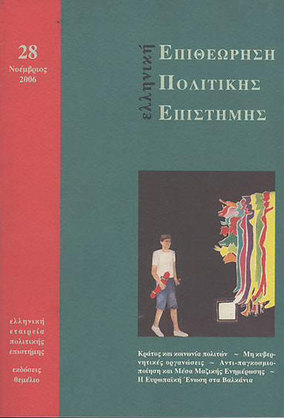Innocent Gentillet : ένας πρώϊμος «εθνικιστής» στον 16ο αιώνα
Part of : Ελληνική Επιθεώρηση Πολιτικής Επιστήμης ; No.14, 1999, pages 96-116
Issue:
Pages:
96-116
Author:
Abstract:
This paper attempts to interpret Innocent Gentiliet’s well known treatise Discours contre Machiavel ( 1576) not as the product of the moral indignation of a pious Christian against the provocative writings of Machiavelli, but as a piece of political propaganda which must be understood within the context of the French religious wars. The Discours is tainted with nationalism. Nationalism -the idea, as Gentillet puts it, that the king’s subjects were linked, above all, by a common language and a common, customary way of life- was, in 1576, a political platform promoted by the protestants in order to obtain a legal status as an autonomous minority religious group within the kingdom. In other words, protestant nationalism, aggressive against the “strangers”-counsel!ors of Catherine of Medicis, was introducing the idea of religious tolerance. This platform was challenged by the catholic “ultras” in the 1580s and the early 1590s, but it finally prevailed after the ascension of Henry iv to the French throne and served as the ideological basis of the Edict of Nantes (1598).
Subject:
Subject (LC):
Notes:
Ο Θεοδόσης Νικολαΐδης διδάσκει νεώτερη ευρωπαϊκή ιστορία στο Τμήμα Ιστορίας του Ιονίου Πανεπιστημίου.




